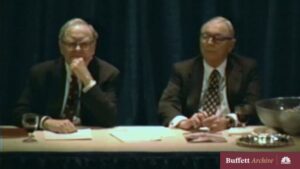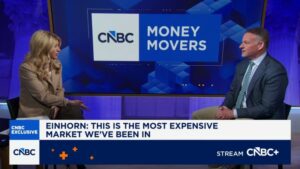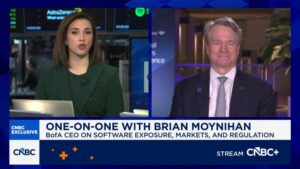Dear Quentin,
Last week, my 55-year-old married daughter (her husband is 58) called to express her anger that I had failed to send her a $25 gift certificate. They have 401(k) accounts totaling over $750,000 and a home valued at over $550,000. Their youngest daughter has a full-ride academic and athletic scholarship for five years at a good university in the Southwest.
Her husband was let go from his company in 2019 and they were in the process of relaunching his business in the fundraising sector, which relies on schools for business. Then the pandemic struck and they were able to collect $1,000 a week in unemployment benefits, plus they received a PPP loan of $15,000.
Rather than borrow from their 401(k), she vented that I should have stepped in to help, and should have known they were eating peanut butter and eggs to get by. I received an inheritance from my parents five years ago when I was 70. I was their caregiver and executor, even though I have a sibling who did not help out at all.
Since that time, I have given them $2,000 a year as gifts to my grandchildren in cash. I also gifted their youngest daughter a car worth $22,000. My daughter told me, “You have more money than you know what to do with.” She has told me numerous times that my inheritance is “their money” (meaning my parents).
I had a trust drawn naming my two children as the beneficiaries, and my oldest daughter (the one I am writing about) as executor. I am very disturbed by our conversations. I would never have asked or expected my parents to lend me money during their old age. I was a single mom for a long time, and I have been through my own struggles.
She and her husband also bought a $1 million home in central Florida in 2003. When the Great Recession hit, they were forced to sell it under duress because they had a balloon payment due that they could not meet, and because — as is the case now — her husband’s business took a serious hit due to the economy during that period.
This incident has hurt me deeply because I have been living below my means to give them an inheritance. Why is it that she wants to blame me for this, and not take responsibility for the choices she and her husband have made? When is the time that I can expect to not have to be blamed for their decisions? How do I address this?
Saddened, Older and Weary
Dear Saddened,
That time is now. Your job is not to ask why, but to tell her how life works.
You can’t know what’s going on with them unless they tell you and, perhaps, there is room for you to help her with her grocery bills, if that’s something that you are comfortable doing. But you cannot become a de facto Ms. Fix-It every time something goes on. You’re her mother, not a piggy bank to be shook and grumbled at if she doesn’t hear it rattle.
Your relationship is worth more than a $25 gift certificate, and that you do the best you can to help her, but you can’t always be their Plan B. For an executor, you want someone who is mature, level-headed and fair. Is she the person to whom you should trust the distribution of your estate? You may have picked up her toys as a child, but doing so in adulthood is an unreasonable expectation.
And that’s where you draw the line: Your job is not to manage your daughter’s expectations. Your role in life is to meet your own needs, do your best to meet your financial and familial expectations, and draw healthy boundaries with other people — family and friends — who allow you to have a happy and secure life. Your daughter can respect that, or not.
Your daughter should cut their expenses and take fewer financial risks that could jeopardize their home. Taking an early withdrawal from their 401(k) before age 59½ should be an absolute last resort, as she would be charged income taxes on the withdrawal in addition to a 10% early withdrawal penalty. The amount she withdraws would be added to her 2021 income tax return.
She would be creating more problems by robbing her 401(k). As Bryson Roof, CFP, an investment adviser at Fort Pitt Capital Group in Pittsburgh, told MarketWatch: “The biggest cost associated with taking a 401(k) distribution is not taxes, it’s the opportunity cost of missing out on the growth of those funds that could have compounded over 20, 30 or 40 years.”
One option is to pay for a financial adviser to help your daughter and point out that you are not to blame for her financial problems. That you have set up a trust for your children and have done everything you can to ensure they have an inheritance, but that is a gift — not an entitlement — just like your inheritance was a gift from your parents.
That’s a triple dose of healthy boundaries, third-party intervention and tough love.
You can email The Moneyist with any financial and ethical questions related to coronavirus at qfottrell@marketwatch.com, and follow Quentin Fottrell on Twitter.
By emailing your questions, you agree to having them published anonymously on MarketWatch. By submitting your story to Dow Jones & Company, the publisher of MarketWatch, you understand and agree that we may use your story, or versions of it, in all media and platforms, including via third parties.
Check out the Moneyist private Facebook group, where we look for answers to life’s thorniest money issues. Readers write in to me with all sorts of dilemmas. Post your questions, tell me what you want to know more about, or weigh in on the latest Moneyist columns.
The Moneyist regrets he cannot reply to questions individually.
More from Quentin Fottrell:
• ‘I just don’t trust my sister’: How do I gift money to my nieces without their mother having access to it?
• We’re getting married and have a baby on the way. My wife has offered to pay off my $10,000 student debt and $7,500 car loan
• I have three children. I quitclaimed my house to my most responsible son. Now he has blocked my calls
• My brother-in-law died, leaving his house in a mess. His landlord wants me to repaint and replace the carpet. What should we do?
This post was originally published on Market Watch






